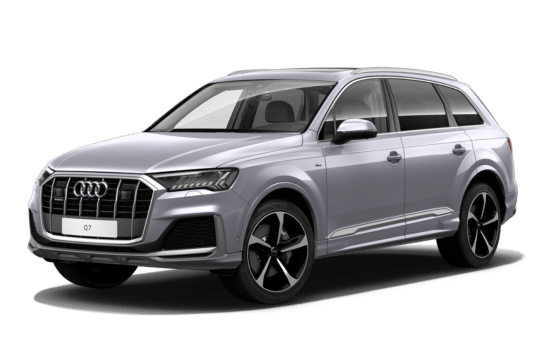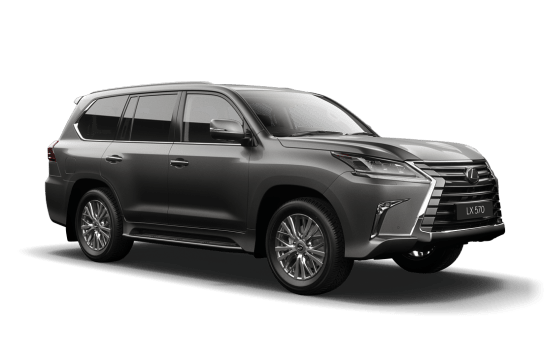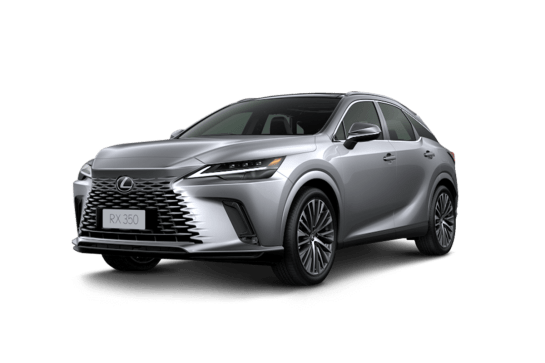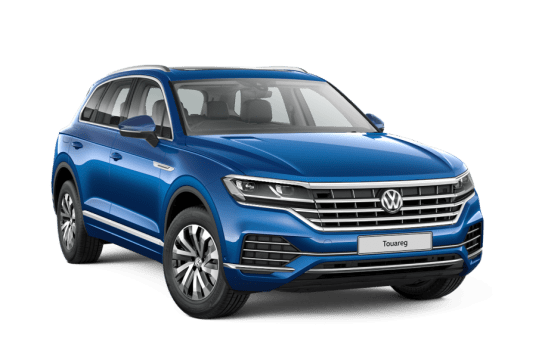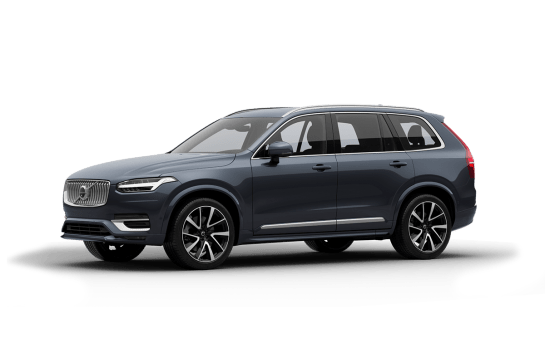
Infiniti QX80 VS Mercedes-Benz GLC-Class
Infiniti QX80
Likes
- Improved looks
- High level of comfort
- Off-road ability
Dislikes
- Price-tag
- No Apple CarPlay, Android Auto
- Understeer, bodyroll
Mercedes-Benz GLC-Class
Likes
- More power and torque
- More fuel efficient
- Stylish cabin
Dislikes
- Misses V8 soundtrack
- Big price rise over previous model
- Smaller boot, no spare tyre
Summary
Infiniti QX80
The world of upper large luxury SUVs, like Infiniti’s latest-generation QX80, occupies that rarefied air, way up high in the car market, that I’ll never breathe – and that’s okay with me.
You see, as much as I admire these plush vehicles, even if I did have the cash and the inclination to buy one, I’d be so worried about incidental damage to the exterior (shopping trolleys or other drivers’ touch-parking) or children-induced damage to the interior (car sickness, spilled food or drink, blood from sibling punch-ups in the second row) that I’d never be able to fully relax while driving the thing. (Newsflash: I’ve heard from Infiniti that the QX80’s upholstery has a soil-resistant coating.)
These pricey wagons certainly do have their fans though and now, with extensive exterior changes and some interior ones, does the QX80, based on the Y62 Nissan Patrol, actually offer anything to set it apart from other large premium SUVs? Read on.
| Safety rating | |
|---|---|
| Engine Type | 5.6L |
| Fuel Type | Premium Unleaded Petrol |
| Fuel Efficiency | 14.8L/100km |
| Seating | 8 seats |
Mercedes-Benz GLC-Class
Let’s make one thing clear from the very beginning - this new Mercedes-AMG GLC63 S E Performance is technically superior to the model it replaces. Whether it’s actually better or not, is the real question at the heart of the matter.
Why? Because, like the C63 sedan stablemate, AMG has opted to replace the previous model’s 4.0-litre twin-turbo V8 engine with a new 2.0-litre four-cylinder hybrid powertrain. It was a move brought about in part because of increasingly stricter emissions standards in Europe, but also ties-in with the German firm’s success in modern Formula One racing.
While the new hybrid system offers more power, more torque and better fuel economy, as the lukewarm response to the C63 has demonstrated, the hard reality for AMG is that its buyers associate it with V8 and even V12 engines. That emotional pull is hard to replace with logic, even if the new model offers technical superiority.
Read more about
- Faster than a Porsche 911 Turbo? 2025 Mercedes-AMG GT63 S E Performance is quickest AMG yet!
- Mercedes-AMG GLC43 2024 review
- 2025 Mercedes-AMG E53 revealed: Bahn-storming petrol-electric hybrid arrives in sedan and wagon form to take on Audi RS6, BMW M5, Maserati Quattroporte Trofeo and Porsche Panamera E-Hybrid
But how does the new powertrain suit the GLC63 - is it just technically better or is it holistically improved?
| Safety rating | — |
|---|---|
| Engine Type | — |
| Fuel Type | — |
| Fuel Efficiency | —L/100km |
| Seating | — |
Verdict
Infiniti QX807/10
The petrol-only QX80, really a Y62 Patrol with shedloads of bling, is a curious beast; a big, bold status-boosting premium SUV, which is much better suited to the US and Middle East markets than ours. However, it has a real premium feel, is very smooth to drive and the exterior and interior changes have improved what has so far been a divisive model for a brand with a small but growing fanbase here. Infiniti sold 83 of the previous QX80 in 2017 and is hoping to move 100 of these new ones in 2018; they have their work cut out for them, but if brand confidence is worth a few sales, who knows, they might even top the ton.
Is the QX80 worth its hefty price-tag, or is it simply too much cash for something that doesn’t even have mainstream connectivity functions?
Mercedes-Benz GLC-Class7.7/10
Like I said right from the start, this new, hybrid version of the AMG GLC63 is technically superior to the model it replaces in every meaningful way. It is faster, more powerful and more fuel efficient and therefore a better performance SUV than the model it replaces.
Is it a better model than the one it replaces? Ultimately that will come down to how much stock you put into the soundtrack and your feelings on an AMG not powered by a V8 engine.
Because if you can see past that, then the AMG GLC63 is an absolutely fantastic performance SUV. Not only does the new powertrain make it faster in a straight line, but the chassis is very well-balanced, making for an engaging driving experience.
For those who can look past the smaller engine they will be rewarded with an incredibly fast and rewarding-to-drive member of the AMG family.
Note: CarsGuide attended this event as a guest of the manufacturer, with travel, accommodation and meals provided.
Design
Infiniti QX807/10
The bulk of the facelifted QX80’s design changes have been to the exterior and include, most noticeably, new LED headlights with a redesigned, sleeker but more aggressive front end than its predecessor’s softer, more rounded curves.
The new QX80’s bonnet is 20mm higher than before and has been extended 90mm; the side steps have been stretched 20mm wider, and the power tailgate has been re-designed to include sharper, thinner, rear LED taillights and the bumper is visually wider.
The whole body has a higher visual centre of gravity, with this latest raft of design shifts giving the SUV a taller, broader, wider and more angular overall appearance.
The interior includes a bigger, chunkier redesigned centre and rear console and those aforementioned premium touches, such as leather-wrapped heated steering wheel, updated upholstery-stitching, semi-aniline quilted leather patterning on door panels and seats, as well as its stainless-steel sill plates, all add to the premium feel.
The QX80 looks better than it did but, as the previous one was pretty hard on the eyes, the 2018 version may still polarise opinion.
Mercedes-Benz GLC-Class
The GLC63 is unmistakably an AMG from the moment you first lay eyes on it. That’s thanks to the AMG-specific elements, starting with the grille with vertical strikes and the AMG crest on the bonnet; which is now a signature item for the performance sub-brand.
The GLC63 is also fitted with the Night Package II design kit; this adds a darkened grille and black chrome badging to further enhance its visual appeal.
The AMG-specific alloy wheels and more aggressive stance do mean the GLC63 stands out from the rest of the GLC range, helping it look fast even when it’s standing still.
Practicality
Infiniti QX807/10
The QX80 is a big unit – 5340mm long (with a 3075mm wheelbase), 2265mm wide and 1945mm high – and, when you’re seated inside it, it feels like Infiniti designers and engineers must have worked hard to maximise the space afforded them for driver and passengers without seeming to have sacrificed any style or comfort.
And that big open space inside the cabin is easy to get comfortable in. There are soft-touch surfaces everywhere – door panels, arm rests, centre-console edging – and the seats are unsurprisingly soft and supportive but tend towards slippery when there are quick changes in speed or direction, or when tackling steep downhills off-road. (It was fun to watch front-seat passengers slip-slide around inside during the 4WD loop)
If you’re up-front you’re well catered for; big glovebox; overhead sunglasses storage; the centre console now has a roomy smartphone storage area; the twin cupholders have been upsized to cop two 1.3-litre cups with handles (up from one 1.3-litre cup and a 950ml container); the USB port has been moved to the other side of the centre console so it’s easier to get to; the storage area under the front passenger arm-rest is now a 5.4-litre compartment, able to hold up to three upright 1.0-litre bottles or tablet devices.
There are nine cupholders and two bottle-holders in total in the QX80.
There’s a sunroof if you get the urge for natural light from above.
Second-row passengers now get 8.0-inch entertainment screens (up from 7.0-inch) and two additional USB ports.
The tip-up second row seats are easy enough to operate and the third row is power 60/40 split-fold-to-flat and reclining.
The QX80 is available with both seven- and eight-seat configurations, with the back seat in a two- or three-seat formation.
There is a 12V outlet in the cargo area.
Mercedes-Benz GLC-Class
Inside the GLC63 is clearly a derivative of the rest of the range, with its C-Class-inspired design and layout, but there’s enough AMG-specific elements to ensure it looks and feels special. This starts with the AMG steering wheel, which comes not only with a thick rim wrapped in Alcantara, but also some AMG special dials to adjust the various performance settings for the powertrain, suspension and transmission.
Then there are the AMG-specific seats, which look good and offer good support for the driver and front seat passenger. The rear seats offer decent space for what is a mid-size SUV, with room enough for two adults or teenagers or three smaller kids.
Those in the back aren’t particularly well looked after though, with only rear air-con vents and small door pockets but no USB charging ports or other small item storage.
The boot is 590 litres, down from 620L in the rest of the range, thanks to the addition of the rear-mounted electric motor. There’s also no room for the temporary spare the rest of the GLC range gets and instead you have to make do with a puncture repair kit.
Price and features
Infiniti QX807/10
Pricing has not changed: there is one model and it still costs $110,900 before on-roads and that price does not include paint other than the standard Black Obsidian; metallic paint is $1500 extra. Changes over and above the previous model’s standard features list include 22-inch 18-spoke forged alloy wheels (up from 20-inch), Infiniti’s InTouch 8.0-inch colour touchscreen (up from 7.0-inch), new Espresso Burl coloured trim, new chrome finishes all-round, updated upholstery-stitching everywhere, quilted leather patterning on seats, new headlights, LED foglights and more. There is no Apple CarPlay or Android Auto.
Mercedes-Benz GLC-Class
The power and torque figures aren’t the only numbers that have risen sharply, with the GLC63 clearly impacted by a double whammy of inflation and the usual new-car price rise.
The GLC63 now starts at more than $191,814 for the SUV and $198,415 for the Coupe, which represents a nearly $30k increase over the old V8-powered model, which was priced at $164,600 just two years ago. Even for luxury car buyers that’s a big jump, especially when you’re trying to convince people of the merits of the four-cylinder powertrain.
That also means it's more expensive than all of its key competitors, including the BMW X3 M Competition, Maserati’s Grecale and the outgoing, petrol-powered Porsche Macan GTS.
To help explain some of this price increase Mercedes-Benz Australia has opted for a high level of standard specification for local cars. Standard equipment includes 21-inch alloys, AMG composite braking, a panoramic sliding sunroof, a unique AMG steering wheel, power-adjustable sports seats in Nappa leather, a head-up display, dual-zone climate control, wireless smartphone charging and a Burmester 3D Sound system.
Also included is the AMG Track Pace suite, for those who want to unleash their GLC on the racetrack.
There’s also a limited run, AMG Edition 1 Package available too, for an additional $12,900. On the outside you get Manufaktur graphite grey magno paint, foiling with colour gradation and large AMG logo on the sides, an AMG Aerodynamics Package, unique alloy wheels with Edition 1 and AMG branding, yellow brake calipers and an AMG fuel filler cap in silver chrome with AMG lettering.
Inside there’s AMG Performance seats, AMG Nappa leather in black with yellow contrasting stitching, AMG illuminated door sills, carbon-fibre AMG trim highlights, yellow seat belts and a unique AMG Performance steering wheel wrapped in carbon-fibre and microfibre.
Under the bonnet
Infiniti QX807/10
The previous generation’s 5.6-litre V8 petrol engine (298kW@5800rpm and 560Nm@4000rpm) remains, as does the seven-speed automatic transmission with adaptive shift control. It also has Infiniti’s all-mode 4WD system, which offers Auto, 4WD High and 4WD Low settings and it has terrain appropriate modes (sand, snow, rocks) able to be dialled in.
Mercedes-Benz GLC-Class
This is what lies at the heart of the AMG GLC63’s success or failure. As I mentioned at the beginning, the previous generation’s 4.0-litre twin-turbo V8 has been replaced by an F1-inspired plug-in hybrid powertrain.
But don’t think that means AMG is suddenly focused on efficiency over performance. When AMG says the powertrain is inspired by the brand’s success in Formula 1 racing, what it means is the battery and electric motor provides a significant performance boost to support the internal combustion engine, not just save fuel.
To that end the combination of the turbocharged 2.0-litre four-cylinder petrol engine and the rear-mounted electric motor produces an impressive 500kW and 1020Nm. That’s a massive jump over the 375kW/700Nm made by the outgoing V8.
Efficiency
Infiniti QX806/10
The QX80 is claimed to use 14.8L/100km. We reckon that fuel-consumption figure is very optimistic and if QX80 owners are partial to towing boats – as Infiniti reckons they are – or if they tackle some 4WDing, then that figure is going to climb much higher quite swiftly.
Mercedes-Benz GLC-Class
Mercedes makes no secret that the battery is designed for performance, not saving fuel. It only has a 14km EV range but can recharge quickly on the move to provide a power boost when needed.
But despite all that, the GLC63 is actually significantly more fuel efficient than the old V8, using a claimed 7.3L/100km, which is a massive 4.9L/100km improvement over the old model. Although, on our day-long test drive we didn’t manage to come close to that claimed figure and instead saw returns around 11L/100km, albeit after a lot of spirited open-road driving.
Driving
Infiniti QX807/10
In the world of luxury SUVs big is king and this thing is definitely on the chunky side of big, but it doesn’t often feel too cumbersome for its own good, or too bulky to steer in and out of Melbourne’s bustling morning traffic with precision.
During this event, we did a fair chunk of driving – highway, country roads, gravel roads and a decent bit of 4WDing – and, surprise, surprise, it did pretty well, especially when things of this ilk usually exhibit the ride and handling of an old poorly-sprung couch on wheels.
It did, however, feel top-heavy at times and revealed substantial body-roll when pushed around corners at speed or even during some sections of slow, bouncy off-roading, so I’d be reluctant to experience what it would be like without hydraulic body motion control. However, we were willing to forgive it any rocking-and-rolling when that healthy V8 growl kicked in as we gave it the boot.
The 22-inch tyre-and-wheel combination is not the way I’d go if I was going to use the QX80 for any off-road forays but, having said that, we did fine on them, at road tyre pressures, over a decent off-road loop.
It has 246mm of ground clearance and 24.2 (approach), 24.5 (departure) and 23.6 (ramp-over) angles.
The QX80 has coil springs all-round and it was only ever caught out when it thumped through a couple of surprise potholes along a dirt road.
This Infiniti model has a claimed tare mass of 2783kg, but you wouldn’t have known it was that many kegs because it powered up steep and slippery bush tracks, through deep muddy ruts, over greasy rocks and through a few knee-deep mud holes with ease. It was as easy as pulling up, switching your terrain modes and dialling in your setting: 4WD High, 4WD Low or Auto. It has a locking rear diff and very capable hill descent control, which we tested on a few rather steep sections of track.
It’s nice to see vehicle manufacturers unafraid to put their off-roaders, even their pricey luxury ones, through a decent off-road loop at launch because it shows they have confidence in its capabilities.
The QX80 has a maximum braked towing capacity is 3500kg and 750kg (unbraked).
Mercedes-Benz GLC-Class
Anyone who still believes in the adage ‘there’s no replacement for displacement’ hasn’t driven a modern turbocharged and hybridised engine. The GLC63 is a demonstration of the metaphorical and literal power of modern technology, combining an extremely efficient and potent internal combustion engine with an electric motor to make enormous real-world performance.
To be blunt, the GLC63 feels like a rocketship out of corners, launching with a ferocity and relentlessness the old V8 simply can’t match. It shouldn’t come as a surprise, a mid-size SUV with 1020Nm was always going to have plenty of performance, but even so it’s a shock to the system every time you give the GLC63 full throttle. Officially AMG claims it takes just 3.5 seconds to run 0-100km/h and has an electronically limited top speed of 275km/h - mighty impressive figures for a five-seat mid-size SUV.
To help get all that torque to the road, AMG deploys torque distribution technology that allows for it to be split an even 50/50 front/rear all the way to 100 per cent to the rear tyres.
Other technologies deployed to enhance its handling include AMG Ride Control suspension with adaptive damping and rear-axle steering. There’s also eight AMG Dynamic Select driving modes and four AMG Dynamics settings (Basic, Advanced, Pro and Master), so it’s a complex vehicle that is designed for the enthusiast.
While it’s easy to drive around town, once you get out on the open road you can really get a sense of the GLC63’s performance potential. Beyond just its powertrain the suspension offers good body control and the rear-axle steering helps it feel agile and responsive.
It’s not perfect though. At times the complexity of the system does lead to some hesitation when you put your foot down. It certainly lacks the linear power delivery of the old V8 and makes for a slightly trickier driving experience at times.
As for the sound, which is one of the biggest elements missing from the V8, Mercedes has added AMG Real Performance Sound, which features a pressure sensor in the exhaust that picks up on the engine note and plays it through the speaker system. It certainly helps make for a louder, more noticeable engine noise, but it still sounds more like an A45 than the previous GLC63 and for many would-be buyers, that’s a major turn-off.
Safety
Infiniti QX808/10
The QX80 does not have an ANCAP safety rating. Safety tech as standard includes blind spot warning, intelligent parking system, forward emergency braking, lane departure prevention (incorporating lane departure warning), distance control assist and predictive forward collision warning, Infiniti/Patrol intelligent rear view mirror (which can display video from a camera mounted in the upper rear windshield) and more. It has two ISOFIX points in the second-row seats.
Mercedes-Benz GLC-Class
The GLC63 comes standard with a comprehensive suite of safety features including 'Distronic' (Mercedes’ name for adaptive cruise control), 'Active Lane Keeping Assist', 'Blind Spot Assist', 'Traffic Light Assist' and 'Adaptive Highbeam Assist'. It also includes Mercedes’ 'Pre-Safe' accident anticipation system - which pre-tensions the seat belts and will even play a white noise to protect your ears if it senses a crash is imminent.
A parking system that includes a 360-degree camera and active parking assist is also included.
The GLC range was awarded a five-star ANCAP rating in 2022, which pre-dates the latest testing protocols, so doesn’t provide a like-to-like comparison for vehicles tested after that date.
Ownership
Infiniti QX807/10
It has a four year /100,00km warranty. Service intervals are scheduled at 12 months/10,000km. The total cost for three years is $1346.11 (GST included).
Mercedes-Benz GLC-Class
The GLC63 is covered by Mercedes Australia’s usual five-year/unlimited kilometres warranty.
As for maintenance, Mercedes offers service plans, spanning three to five years. Three years will cost you $5025, $6455 for four years and five years is priced from $7180. Servicing intervals are 12 months or 20,000km, whichever comes first.


